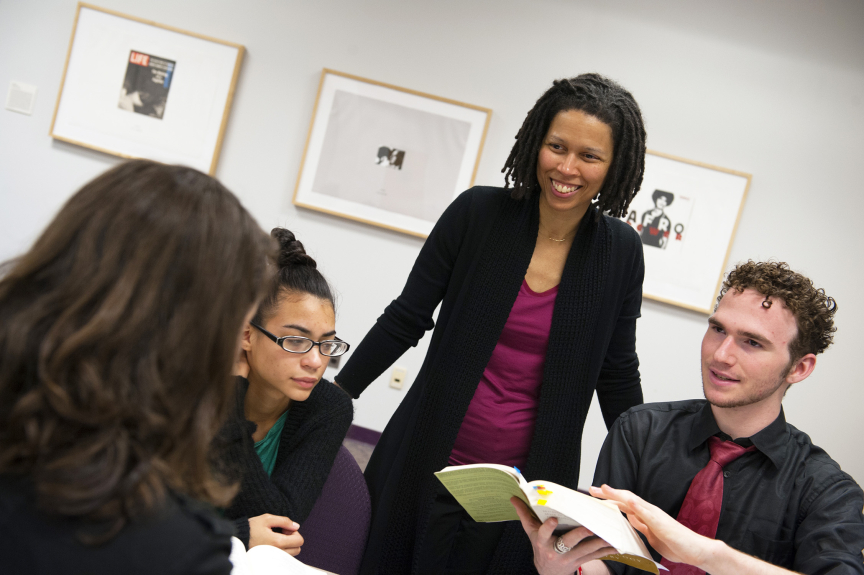Rutgers Professor Named Pulitzer Prize Finalist
Pulitzer board says Evie Shockley's poetry "leaves the reader unsettled, challenged – and bettered"

Students "get to appreciate poetry both in terms of its cultural value and in terms of a poet’s way of thinking. I have some insights into what goes into the process, how poets are influenced by those who came before them, their schools and traditions, and how one poet’s work might influence the next."– Evie Shockley
For Evie Shockley, poetry – and her professorship at Rutgers University–New Brunswick – are central to her engagement with a world that needs change and central to the ways she prepares students to do their own engagement.
This week, Shockley was selected as a finalist for the Pulitzer Prize in the poetry category. The Pulitzer board called her latest book, semiautomatic, a “brilliant leap of faith into the echoing abyss of language, part rap, part rant, part slam, part performance art, that leaves the reader unsettled, challenged – and bettered – by the poet’s words.”
Shockley is an associate professor of English at the School of Arts and Sciences, where students benefit from the experience of someone who is not just a theorist but a working poet.
“They get to appreciate poetry both in terms of its cultural value and in terms of a poet’s way of thinking. I have some insights into what goes into the process; how poets are influenced by those who came before them, their schools and traditions; and how one poet’s work might influence the next,” she said.
Shockley also codirects the Rutgers English Diversity Institute (REDI), which encourages students from underrepresented cultural, economic and ethnic backgrounds to pursue academic careers. Nationwide, she said, education and the business of preparing minds improve when faculties become more diverse.
Students of color benefit from working with professors whose experiences may more closely reflect or intersect with their own, Shockley said. Those from more privileged backgrounds benefit from working with peers and authority figures whose lives and perspectives are different from their own.
These values – and those of recognizing and ending racism – are also deeply embedded in Shockley’s poetry.
Her Pulitzer finalist book “came together around the Black Lives Matter movement and the attention paid to some of the most painful and outrageous acts of violence happening against black people. What we were seeing was maybe not that things were getting worse, but how bad they had been all along,” she said.
The title, semiautomatic, “brings up the weapon, but also signifies the habitual ways we react to one another. Violence is a habitual reaction to certain kinds of fear or disappointment, and the outrage or grief that people feel in response can also become a pattern. I feel like we have to break out of these habits to create change.”
semiautomatic includes this poem, which references Shockley’s father. Born in 1930, he worked, trained and studied to become a commercial pilot – only to find that no American airline at the time would hire a black man.
jim crow stole my father's wings
that cat was a straight arrow, flying like he'd been shot
true from a sturdy bow, in a steady parallel to earth. scot
free : his tail all feathers, his high all feet. he kept a cloud
in his pocket, the wind's whistle between his teeth. proud
of his hours, his ratings, his license to skill, he took off
after a uniform and a jet. but a foul thing, packing a roof
and crawling in his wake, fused its (b)lack to his (f)light:
an arbitrary shadow screwed to his heels, waited his float
with gross ballast, dragged him down when gravity'd failed.
he held on to the whistle, sent it soaring up from the soil.
The book reflects Shockley’s belief that “art can help us think through possible solutions, help us imagine change and sustain us to do the work we need to do.”
“If we don’t hope, we can’t create change,” she said. “Hope is not optional.”